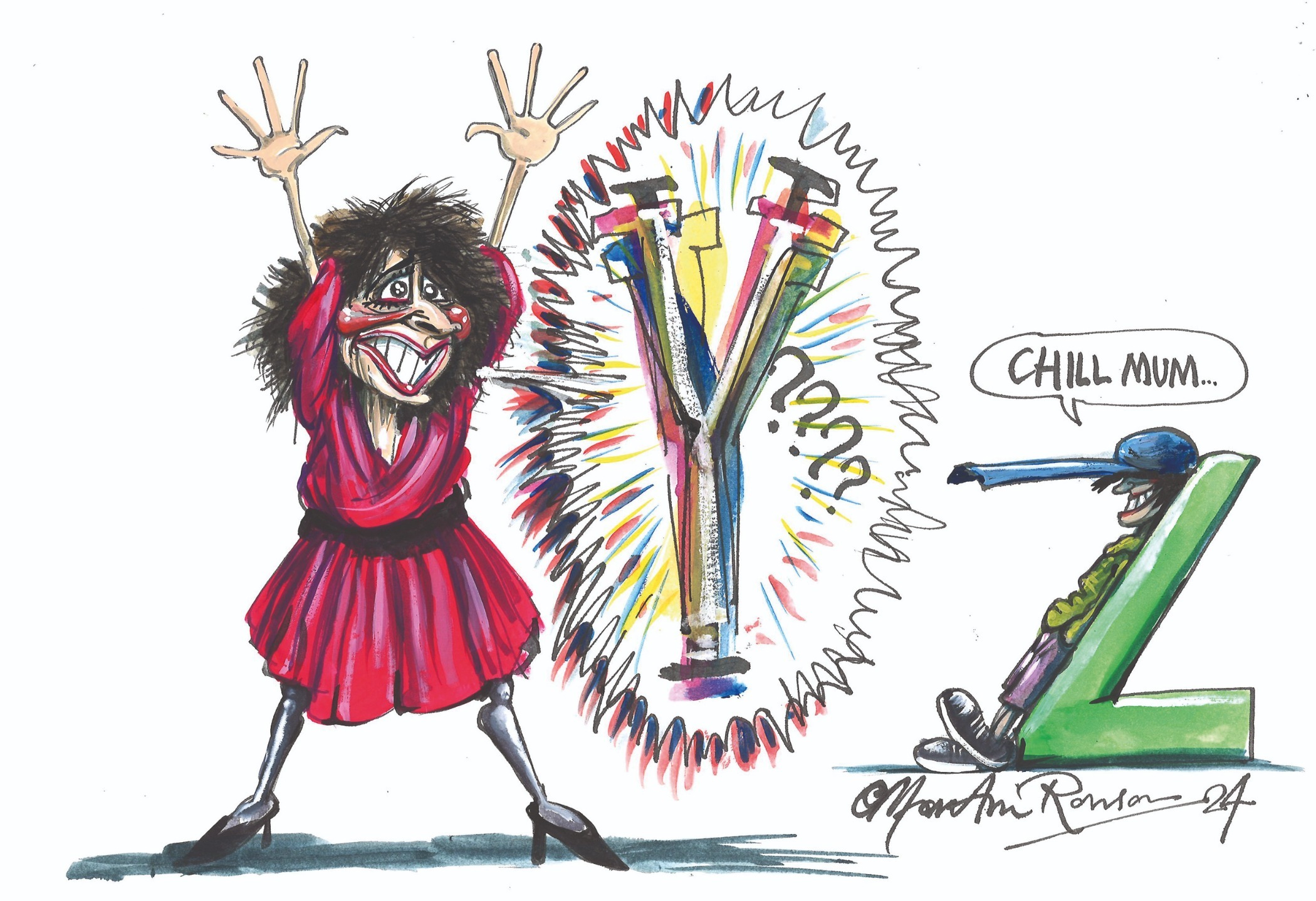
Gen Z are given a great deal of credit these days. Born between 1997 and 2012, they’re the generation with their heads screwed on, trusted to sort out the mess the rest of us have made of the world. This generation, now aged 12 to 27, were the first full “digital natives”, having never known life without the internet. If you have a Gen Z person in your life, you will know that each one is an IT Support Department for their entire family. I was able to keep the wolf from the door during lockdown because my children were on hand to get me onto Zoom calls and set me up for online gigs.
There are other, more subtle ways in which this generation are distinct. Gen Z schoolchildren do not seem to shun others for their appearance. Not even ginger kids. Not even ginger kids who wear glasses and not even if they are also fat. I told my 10-year-old daughter tales of kids shouting “Ginger nut!”, “Four-eyes!” and “Fatty fatty boom boom!” She was baffled. “That’s like laughing at someone for having feet.”
Messages of self-care are plastered all over their school walls. On my way to a parent-teacher meeting, I passed a notice on a door saying, “You Matter. You Are Enough.” Misty-eyed, I marched down the corridor, my head held high. “THANK YOU DOOR! I needed to hear that. I do matter. I am enough.” I burst into the meeting singing Shirley Bassey’s “I Am What I Am”.
They learn about the importance of equality, along with what “gaslighting” is, in PSHE (personal, social, health and economic education). When his friend came out as non-binary, my son reassured me, “It’s okay if you get their pronouns wrong, Mum, we know you’re old.”
I did have a problem with their pronouns, because I could not remember what a pronoun was. (Grammar and me have never been friends.) Once my daughter explained what one was, I was outraged. These pipsqueaks had no idea that the freedoms they have to be themselves are hugely down to the efforts of us “old” people. Changes in culture don’t happen by accident, they happen when people fight for them. So as we appreciate Greta Thunberg and all the bold and brilliant Gen Zs, may I remind you they were raised by my generation: the much-maligned Generation X.
We, the binge-drinking, pill-popping ravers of the 90s, have raised kids who have the self-esteem not to murder their brain cells. (And given the state of the economy, they also can’t actually afford to be the hedonists we were, poor things.) Social media is their language and they use it to promote self-acceptance and inclusivity, because they don’t internalise prejudice the way we did.
Generation X were the latchkey kids whose mothers were vilified for going to work. Our teachers were shackled by the brutality of Section 28. We had to look to Eastenders storylines to support our belief that being gay was not a perversion. It was ordinary for non-white kids like me to brace themselves for a racial slur called out to us from a window of a car. We did not have TikTok to turn to, in order to share our hurt. We thought we were alone.
For most of our childhoods, my generation had a prime minister who insisted poor people were deliberately poor, just to annoy everybody. Our newspapers heaped shame on those who struggled, so that kids at school wearing hand-me-downs were called “tramps”. We had to stand up for each other IRL (that’s In Real Life, grandad). We made placards and marched against racism at a time when the National Front had their meetings in the very same pubs where we enjoyed our first under-aged drinks. We marched for gay rights with hope in our hearts and Lambrusco in our rucksacks. Old indeed!
So when my son’s non-binary buddy came over, I thought, “I’ll show you who can’t get pronouns right!” But annoyingly, there’s no grammatical need to address people directly by their pronoun. Desperate to prove myself, I ended up asking, “Would thee like a drink?”
This article is from New Humanist's spring 2024 issue. Subscribe now.

